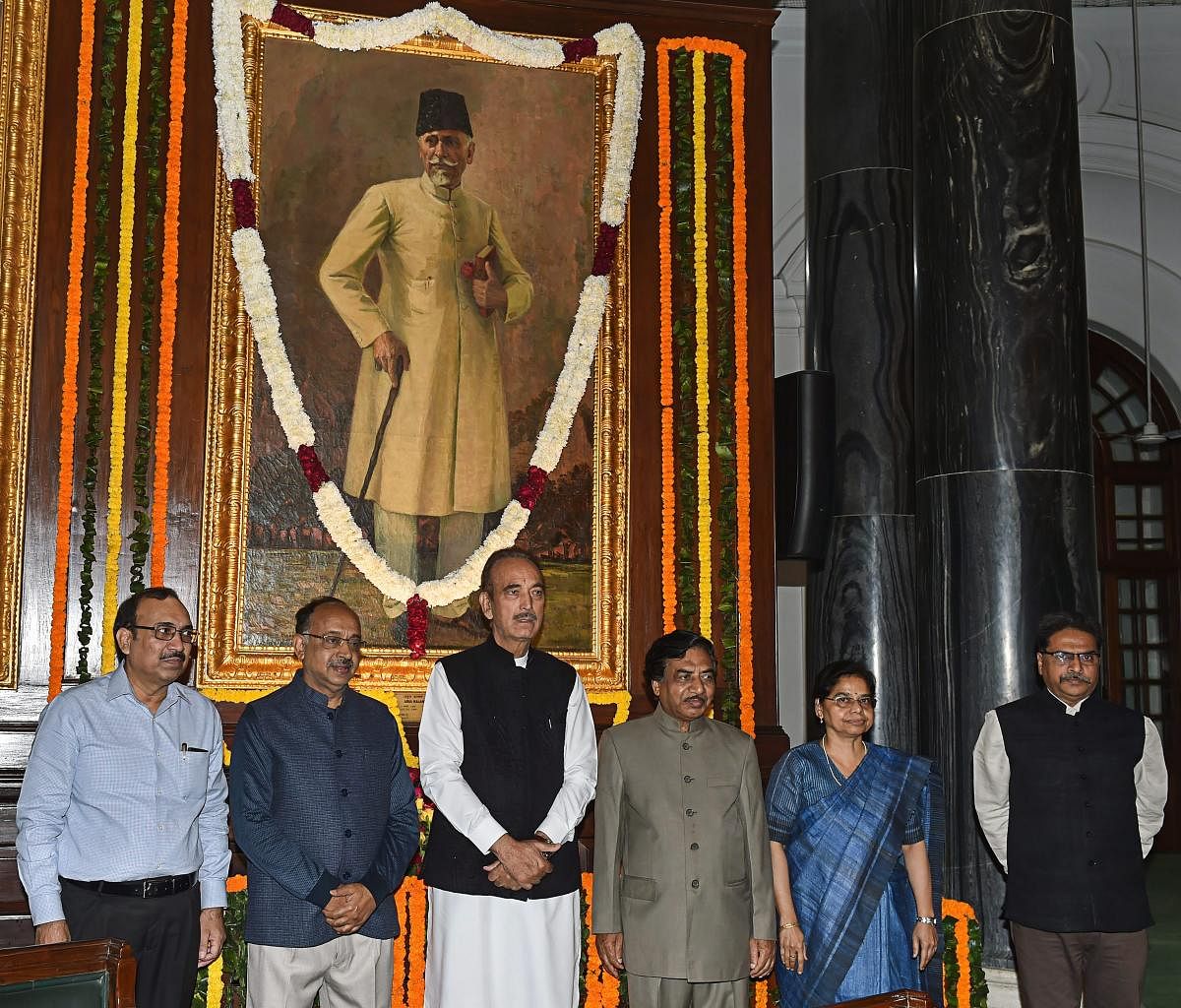On National Education Day, 12 facts about Maulana Azad
Last Updated IST

Senior Congress leader Ghulam Nabi Azad, Minister of State for Parliamentary Affairs Vijay Goel and other dignitaries pay tribute to Maulana Abul Kalam Azad on his birth anniversary in the Central Hall of Parliament House in New Delhi, Sunday. PTI photo
Maulana Abul Kalam Azad is one of the most respected and remembered freedom fighters of India. His Birth anniversary is celebrated as the National Education Day on November 11. After all, he was the first Education Minister of Independent India whose contribution to the cause of education in the country is exemplary.
Azad was a freedom fighter, nationalist, a notable scholar and a poet among several other things. As the nation pays tribute to the legend, DH presents some interesting facts about Azad to help you know him better.
- Born in 1988, Azad's full name was Firoz Bakht, commonly called as Muhiyuddin Ahmad.
- Using the pseudonym Abul Kalam 'Azad' acquired a high reputation for his writings on religion and literature in the standard Urdu journals of the time.
- Till the age of 22, he did not approve of the Congress movement on account of its 'slowness'; also he could not join the Muslim League whose political goal he found unpredictable.
- Maulana Azad started from 13 July 1912 an Urdu weekly the Al - Hilal from Calcutta. He was politically and religiously radical. The paper shocked the conservatives and created a furore. The British government banned his newspaper in 1914.
- Azad was the youngest person to serve as the President of the Indian National Congress at the age of 35 in 1923.
- Azad became the leader of the 'Khilafat Movement' in 1919-26.
- In October 1920, Maulana Abul Kalam Azad was instrumental in establishing Jamia Millia Islamia at Aligarh in U. P.
- As the Congress president from 1940 to 1945 and under his leadership the Quit India rebellion was launched.
- Azad became the most prominent Muslim leader to oppose the creation of Pakistan
- He passed away on 22 February 1958 in New Delhi. Azad’s tomb is located next to the Jama Masjid in Delhi.
- In 1992, Government of India awarded Azad with Bharat Ratna posthumously for his indispensable and extremely valuable contribution to India.
- Maulana Azad National Urdu University is located in the city of Hyderabad.